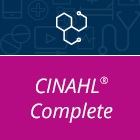Nursing & Health Sciences Research Journal
Abstract
Introduction: The CDC (2020) revealed that the age-adjusted prevalence of diabetes mellitus in the United States among the Black, non-Hispanic population is 16.8%. A study conducted by Bivins et al. (2021) revealed a 39% prevalence of type 2 diabetes mellitus (T2DM) among Haitian Americans (HAs) living in several states. In the literature, HAs are often grouped with Black Americans, yet Haitian American women (HAW) have unique struggles with treatment and management of T2DM. No prior study used the empowerment theory to improve the management of T2DM in HAW. Purpose: To improve the understanding of T2DM in HAW using empowerment theory. This article is the second installment of a two-part series discussing findings from a 2017 hermeneutic phenomenological study conducted with 25 HAW living with T2DM in South Florida. Methods: This phenomenological study used Van Manen’s six research techniques to guide this qualitative inquiry involving 25 HAW. Results: Several themes emerged from the data analysis. This paper discusses two themes that can be addressed through empowerment theory to improve health outcomes: (a) challenges to adhering to treatment regimen, with the subthemes of health beliefs, mistrust, and perceived powerlessness, and (b) recognizing the enemy—stress. Discussion: This paper will demonstrate how nurses are well positioned to educate HAW with T2DM to manage their condition better and increase adherence to treatment by using the empowerment theory.
Recommended Citation
Bivins, B., Owusu, B., Hershorin, I., Umadhay, T., Joseph, J., & Singh, A. (2023). Using Empowerment Theory to Improve Understanding of Type 2 Diabetes Mellitus in Haitian American Women. Nursing & Health Sciences Research Journal, 6(1), 49-60. https://doi.org/10.55481/2578-3750.1161
Creative Commons License

This work is licensed under a Creative Commons Attribution-NonCommercial-No Derivative Works 4.0 International License.


